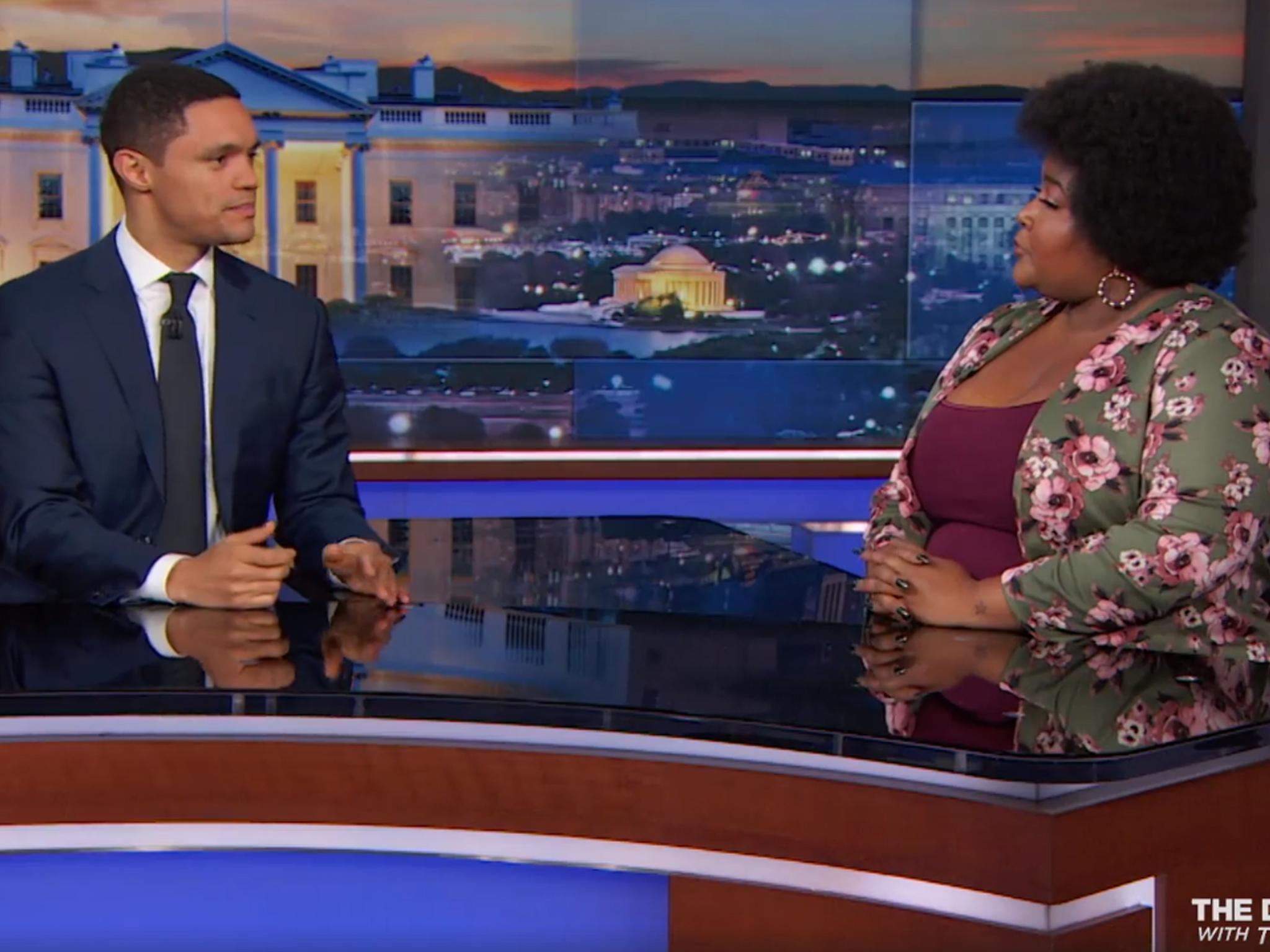Alabama election: Black women on saving America from itself
'You're welcome, white people. But let's be honest, we didn't do it for you, we did it for ourselves'

Late night television hosts dived headfirst into the fallout from this week's Senate race in Alabama. On the Daily Show, Trevor Noah tapped the programme's correspondent Dulce Sloan to highlight one of the bigger takeaways from Doug Jones's squeaker win over Roy Moore: the role of Alabama's black women in delivering a win for Democrat Jones over the Republican.
According to exit polls, 98 per cent of black women voted for Jones, with 93 per cent of black men turning up for the candidate. White men and women, by contrast, voted 26 and 34 per cent for Jones, respectively.
The strong showing sparked a lot of social media commentary and celebration online for black women, cascading to the point where a hashtag (#blackwomen) began trending on Twitter.
"People are saying thank you to black women, online you saw it, it must have been nice to see black women's contributions finally recognised," Noah told Sloan.
"Yes! We've been through so much!" Sloan shot back. "And you're welcome, white people. But let's be honest, we didn't do it for you, we did it for ourselves. No black woman cast her vote going, 'This one's for Scott!'" she said as the audience cracked up.
"So if you really want to thank us, how about you change the laws making it easier for us to vote, or sing our praises by giving us raises. Or at the very least cancel winter. You know only white people like snow."
Late night jokes aside, the commentary hit the bull's eye on a real conversation spinning off the Alabama election. The black woman - who Malcolm X once pointed out was the "most disrespected" "most unprotected" and "most neglected person in America" - turned out because she had the most to lose from the policies pushed by the far right conservatives like Mr Moore, some commentators argued.
But after the election was all the attention heaped on black women sincere? Or patronising? And will it evaporate within a few days?
Mark Ruffalo tweeted "Love and decency prevails. Thank you Alabama! The black folks of Alabama saved the day. They should seriously get priority space at the table."
Julie Wells tweeted "Thank you #BlackWomenThe country will be a better place because of you!!!"
In a piece titled "Black Women Are a Political Organizing Force. They're Not Unicorns," HuffPost writer Julia Craven reported on the exhaustive on-the-ground organising black volunteers in Alabama did to mobilise for Mr Jones. By ignoring the actual work, Craven wrote, observers were playing into a "Magical Negro" stereotype.
"In Hollywood, as in politics, the Magical Negro is a virtuous black character who serves to better the lives of white people via seemingly supernatural means and asks nothing for herself. She is frequently praised for what she has done for white folks, praised for her saintly equanimity and selflessness, and too little acknowledged for all the things - the wiles, the grit, the grinding, thankless work - that went into securing the happy outcome."
"Don't just overlook the hard work that we did," one organiser, Carissa Crayton, told Craven. "Don't overlook the hard work that we've been doing."
At the Root, Ashley Nkadi argued in her piece "Y'all Don't Deserve Black Women" that this particular demographic has been consistently taking political stands that are later taken up by a wider audience. "Every time there is something good in this world - know that black women probably did it first, said it first, sent it first," Nkadi wrote. "Conversely, most negative things in this world, black women tried to save you from."
She continued: "It was Anita Hill who exposed the predatory nature of men on Capitol Hill, long before Monica Lewinsky's heels ever stepped on the carpets of the Oval Office. It was Tarana Burke who sent the first #MeToo into the world, 10 years before the movement was appropriated by white feminism. Twenty years before the pink pussy hats that filled the streets of our nation's capital, 750,000 black women gathered for their Million Woman March."
The Daily Show wasn't the only late night program to tackle the topic. On "Late Night" Seth Meyers brought on one of the show's writers, Amber Ruffin, to comment on the election.
"Do you know what these women go through every day? Those women woke up yesterday and were like, 'I've got to deal with systemic racism, the gender pay gap, the school to prison pipeline, humidity and now y'all want me to save America?'"
Ruffin urged white voters to take a cue from Tuesday's results. "White people, I invite you to look upon our example, and steal it. It's called appropriating, and it should be easy for you because you do it all the time. So while you're busy appropriating our music and our fashion and our big fat booties, try appropriating our common sense."
The Washington Post
Join our commenting forum
Join thought-provoking conversations, follow other Independent readers and see their replies
Comments
Bookmark popover
Removed from bookmarks